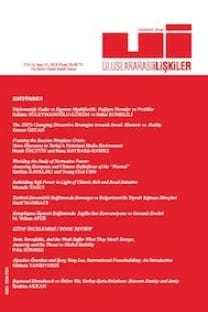Bağımsızlık Sonrası Gürcistan-Avrupa Birliği İlişkileri
Avrupa Birliği (AB), Sovyetlerin daha uzun vadede beklenen ani yıkılışının yarattığı ilk şaşkınlığı atlatır atlatmaz sınırlarını, eski Sovyet cumhuriyetlerinden oluşan Doğu Avrupa’yı içine alacak şekilde genişletmeye başlamıştır. Karadeniz’in öteki yakasında kalan Güney Kafkasya ülkeleri için ise daha temkinli ve Rusya’nın endişelerini gözönünde bulunduran bir yaklaşım benimsemiştir. Bu nedenle AB-Gürcistan ilişkileri ancak 1999’da Ortaklık ve İşbirliği Anlaşmasının sunduğu çerçeve sayesinde somutlaştırabilmiştir. AB bugün Gürcistan’ın taşıdığı jeostratejik öneminin farkındadır. AB oluşturmaya gayret ettiği Avrupa Güvenlik Mimarisi için de sınırlarını kuşatan bir dost ülkeler kuşağı tasarlamıştır. AB, yumuşak diplomatik “sivil gücü” ve Avrupa Komşuluk Politikası aracılığıyla Gürcistan’ı alternatif enerji kaynakları güzergahı üzerinde “Avrupalılaşmış”, istikrarlı bir ayrıcalıklı ortak olarak yeniden şekillendirmektedir. AB’nin küresel etkinliğini ve küresel enerji pazarında söz sahibi olmasını hedefleyen politikalar Gürcistan’ın Birlik ile bütünleşmesini kaçınılmaz kılmaktadır.
Anahtar Kelimeler:
Avrupa Dış Politikası, Gürcistan, Enerji, Avrupa Komşuluk Politikası, ABD
Post-Independent Georgia-European Union Relations
As soon as the European Union (EU) overcame the initial shock after the sudden collapse of the Soviets, which was expected in the long term, it began to enlarge its borders to encompass the Eastern Europe consisting of the Former Soviet Republics. However, for the South Caucasian states on the other side of the Black Sea, the EU adopted an approach that is more cautious and taking considerations of Russia into account. The EU-Georgia relations became solid only in 1999 thanks to the framework provided by the Partnership and Cooperation Agreement. EU, today, is aware of the geostrategic importance of Georgia. The EU has designed a spherical zone of friendly countries encircling its borders for the European Security Architecture it is trying to create, as well. The EU is reshaping Georgia as a "Europeanized", stabile and privileged partner on the alternative route of energy resources through its "civic power" and European Neighbourhood Policy. Policies targeting the global effectiveness of the EU and a role for the EU in the global energy market make the integration of Georgia with the Union unavodiable.
Keywords:
European Foreign Policy, Georgia, Energy, European Neighbour hood Policy, USA,
___
- .....
- ISSN: 1304-7310
- Başlangıç: 2004
- Yayıncı: Uluslararası İlişkiler Konseyi Derneği İktisadi İşletmesi
